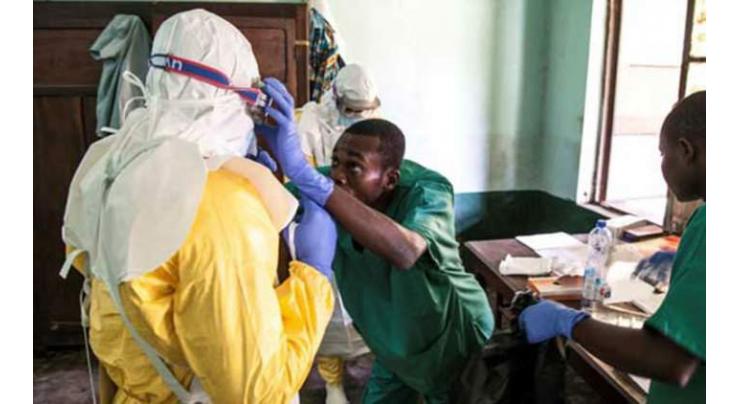
- Home
- Health
- News
- MSF Urges Collective Action Against Ebola Outbreak in DRC Amid WHO International Emergency
MSF Urges Collective Action Against Ebola Outbreak In DRC Amid WHO International Emergency
Muhammad Irfan Published July 18, 2019 | 09:56 PM

The Doctors Without Borders (MSF) charity calls for immediate action of all the actors involved, including governments, in order to increase surveillance in regular health facilities and ease access to healthcare for all people across the disease-hit Democratic Republic of the Congo (DRC), MSF Emergency Medical Manager for Ebola told Sputnik on Thursday
On Wednesday, the World Health Organization declared the Ebola outbreak in the Democratic Republic of the Congo an international public health emergency.
"This declaration is a formal recognition of the level of emergency in the Democratic Republic of the Congo (DRC). Indeed, the situation in DRC remains critical. Almost one year into this Ebola epidemic in DRC, people are dying in communities and health workers are infected, with more than 1,600 Ebola-related deaths reported," MSF Emergency Medical Manager for Ebola Kate White said.
She stressed that it was important to take immediate action, such as strengthening surveillance to prevent infections occurring in regular health facilities, which requires a collective approach to tackling this second largest epidemics in history.
"The declaration outlines measures that need to be taken. For instance, measures to strengthen surveillance, or prevent infections occurring in regular health facilities.
The declaration must now lead to concrete and immediate actions to fight this epidemic. All involved in the response - humanitarian organizations, health actors, governmental bodies - need to fight this epidemic. Collective efforts are crucial," White said.
She also pointed out the need to cooperate with the Ebola-hit communities to effectively fight the outbreak of the disease.
"We must continue to build a trusting relationship with communities. Communities need to be at the center of the response - we must work with them. As MSF, we're doing so by being present in local health structures, where we're offering general health care services, to increase access to health care for all patients, but also implementing Ebola-related activities such as support to surveillance, triage, managing transit units and infection prevention and control activities," she added.
The DRC Health Ministry has recorded 2,501 confirmed and suspected Ebola infection cases since the outbreak began last summer. More than 1,600 of those patients died, while another 700 were successfully treated.
The most severe Ebola outbreak took place in West Africa in 2014-2015, resulting in the death of more than 11,000 people.
Recent Stories

Mired in crisis, Boeing reports another loss

Session Awarding Ceremony 2024 held at Cadet College Muzaffarabad

Austrian ski great Hirscher to make comeback under Dutch flag

Pakistan, Japan agrees to convene 'Economic Policy Dialogue'

FM Dar conveys deepest sympathy on torrential rains devastation in UAE

Spain PM Sanchez says weighing resignation after wife's graft probe

Tennis: ATP/WTA Madrid Open results - 1st update

Long-lost Klimt portrait auctioned off for 30 mn euros

Osaka seals first win on clay since 2022 in Madrid

Earthquake jolts Karachi

Sindh minister orders operation after attack on police in Ghotki

TikTok to fight US ban law in courts
More Stories From Health
-

Vaccines save at least 154 million lives in 50 years: WHO
10 hours ago -

UHS to issue MBBS degrees within three months after final result
13 hours ago -

Rawalpindi woman gives birth to six babies
5 days ago -

DC calls for intensive anti-polio drive in ICT
6 days ago -

World Hemophilia Day observed to underscore importance of providing comprehensive care
7 days ago -

Six in a family with heart on the 'right side'
7 days ago
-

Diabetic disease increasing rapidly : Dr. Noor Elahi Memon
7 days ago -

World Hemophilia Day observed
7 days ago -

ATC dismisses bail petition of doctor involved in illegal kidneys transplant
15 days ago -

Dr. Shehzad warns against deviation from WHO guidelines on anti-smoking
15 days ago -

Health activists express concerns over attempts to derail tobacco control
17 days ago -

UHS declares MBBS first prof, MS urology exam results
27 days ago











